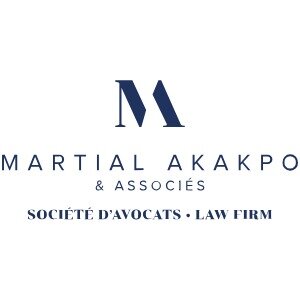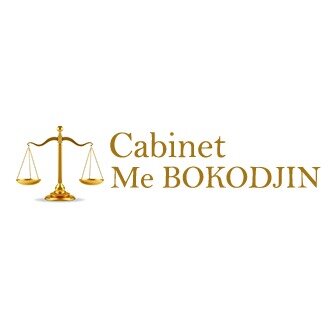Best Mortgage Lawyers in Togo
Share your needs with us, get contacted by law firms.
Free. Takes 2 min.
Free Guide to Hiring a Real Estate Lawyer
Or refine your search by selecting a city:
List of the best lawyers in Togo
About Mortgage Law in Togo
Mortgage in Togo involves the legal process by which individuals or businesses use property as collateral to secure a loan. In the event of default on the loan, the lender has the right to take possession of the property through foreclosure. Understanding the laws surrounding mortgages in Togo is crucial to protecting your rights and interests.
Why You May Need a Lawyer
Seeking legal advice in the field of mortgage in Togo may be necessary in various situations, including negotiating mortgage terms, understanding legal obligations, resolving disputes with lenders, and navigating the foreclosure process. A lawyer can provide guidance, review contracts, and represent your interests in legal proceedings.
Local Laws Overview
In Togo, mortgage laws are governed by the Civil Code and other relevant statutes. Key aspects of local laws include requirements for creating a valid mortgage, procedures for registering mortgages, rights and responsibilities of parties involved in mortgage transactions, and procedures for foreclosure in case of default.
Frequently Asked Questions
1. What is the legal definition of a mortgage in Togo?
In Togo, a mortgage is a legal agreement where the borrower pledges property as collateral to secure a loan from a lender.
2. What are the requirements for creating a valid mortgage in Togo?
In Togo, a valid mortgage must be in writing, identify the parties, describe the property being mortgaged, and be registered with the relevant authorities.
3. What are the rights and responsibilities of the borrower in a mortgage agreement?
The borrower is responsible for making timely loan payments, maintaining the property, and fulfilling other obligations as outlined in the mortgage agreement.
4. What are the rights of the lender in a mortgage agreement?
The lender has the right to enforce the terms of the mortgage agreement, receive loan payments, and pursue foreclosure in case of default by the borrower.
5. What is the foreclosure process in Togo?
In Togo, the foreclosure process involves legal proceedings to repossess the property pledged as collateral for the loan in case of borrower default.
6. Can a borrower negotiate mortgage terms with the lender?
Yes, borrowers can negotiate mortgage terms, such as interest rates, repayment schedules, and loan conditions with the lender before entering into a mortgage agreement.
7. How can a lawyer help with mortgage-related disputes in Togo?
A lawyer can provide legal advice, represent clients in negotiations with lenders, review mortgage agreements, and represent clients in court proceedings related to mortgage disputes.
8. Are there regulations in Togo to protect consumers in mortgage transactions?
Yes, Togo has laws and regulations that aim to protect consumers in mortgage transactions, including requirements for transparency, fair lending practices, and consumer rights.
9. How long does the mortgage registration process take in Togo?
The mortgage registration process in Togo can vary depending on the complexity of the transaction and the efficiency of the relevant authorities. It is advisable to seek legal advice to ensure timely registration.
10. What are the consequences of defaulting on a mortgage in Togo?
Defaulting on a mortgage in Togo can result in the lender pursuing foreclosure proceedings, repossession of the property, and potential legal consequences for the borrower.
Additional Resources
For additional information on mortgage law in Togo, you can contact the Ministry of Justice, consult legal resources, or seek assistance from legal professionals specializing in real estate law.
Next Steps
If you require legal assistance or advice regarding mortgage matters in Togo, it is advisable to consult with a qualified lawyer who can guide you through the legal process, protect your rights, and help you resolve any issues that may arise.
Lawzana helps you find the best lawyers and law firms in Togo through a curated and pre-screened list of qualified legal professionals. Our platform offers rankings and detailed profiles of attorneys and law firms, allowing you to compare based on practice areas, including Mortgage, experience, and client feedback.
Each profile includes a description of the firm's areas of practice, client reviews, team members and partners, year of establishment, spoken languages, office locations, contact information, social media presence, and any published articles or resources. Most firms on our platform speak English and are experienced in both local and international legal matters.
Get a quote from top-rated law firms in Togo — quickly, securely, and without unnecessary hassle.
Disclaimer:
The information provided on this page is for general informational purposes only and does not constitute legal advice. While we strive to ensure the accuracy and relevance of the content, legal information may change over time, and interpretations of the law can vary. You should always consult with a qualified legal professional for advice specific to your situation.
We disclaim all liability for actions taken or not taken based on the content of this page. If you believe any information is incorrect or outdated, please contact us, and we will review and update it where appropriate.
Browse mortgage law firms by city in Togo
Refine your search by selecting a city.











